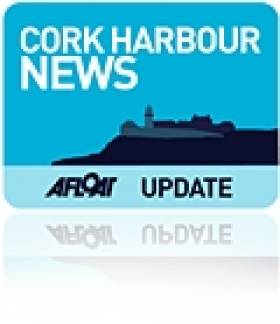Displaying items by tag: Irish nautical college
Take a View From the Bridge
In the evening the Cork Corona Film Festival will hold a fundraiser themed the 'Amazing Cork Maritime Experience' at the NMCI from 5pm onwards.
Also in Ringaskiddy, at the Deepwater Quay, Fastnet Lines' 22,000 tonnes Julia will be open to the public between 11am to 3pm. This will allow those to tour the facilities of the 1,500 passenger/325 vehicle capacity ferry which has operated the year round Cork-Swansea route since last year.
To enable visitors to visit the events spread across the world's second largest natural harbour, a free shuttle-ferry service connecting Ringaskiddy, Monkstown,Cobh, Aghada and Crosshaven will be operating on the day. The ferry service is sponsored by the Port of Cork Company and National Maritime College of Ireland (NMCI).
- port of Cork
- Cork Harbour Open Day
- NMCI
- Fastnet Line
- National Maritime College of Ireland (NMCI)
- Ports and Shipping News
- Cork Harbour News
- Port of Cork Company
- Ferry news
- Portsand Shipping News
- Irish nautical college
- MVJulia
- Ringaskiddy Ferry Terminal
- CorkSwansea ferry route
- Cork Corona Film Festival
























































